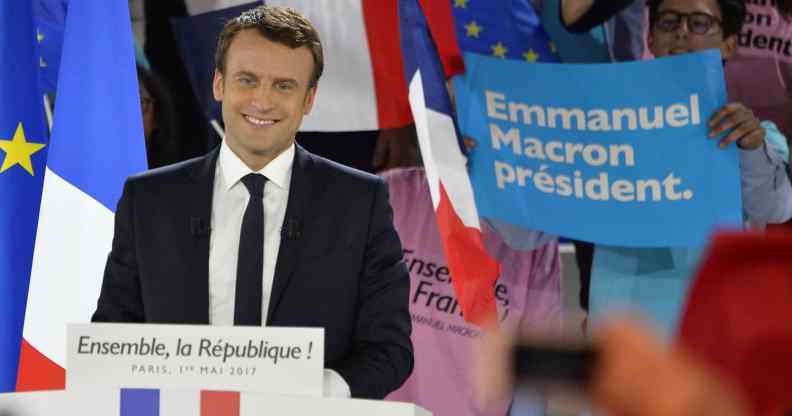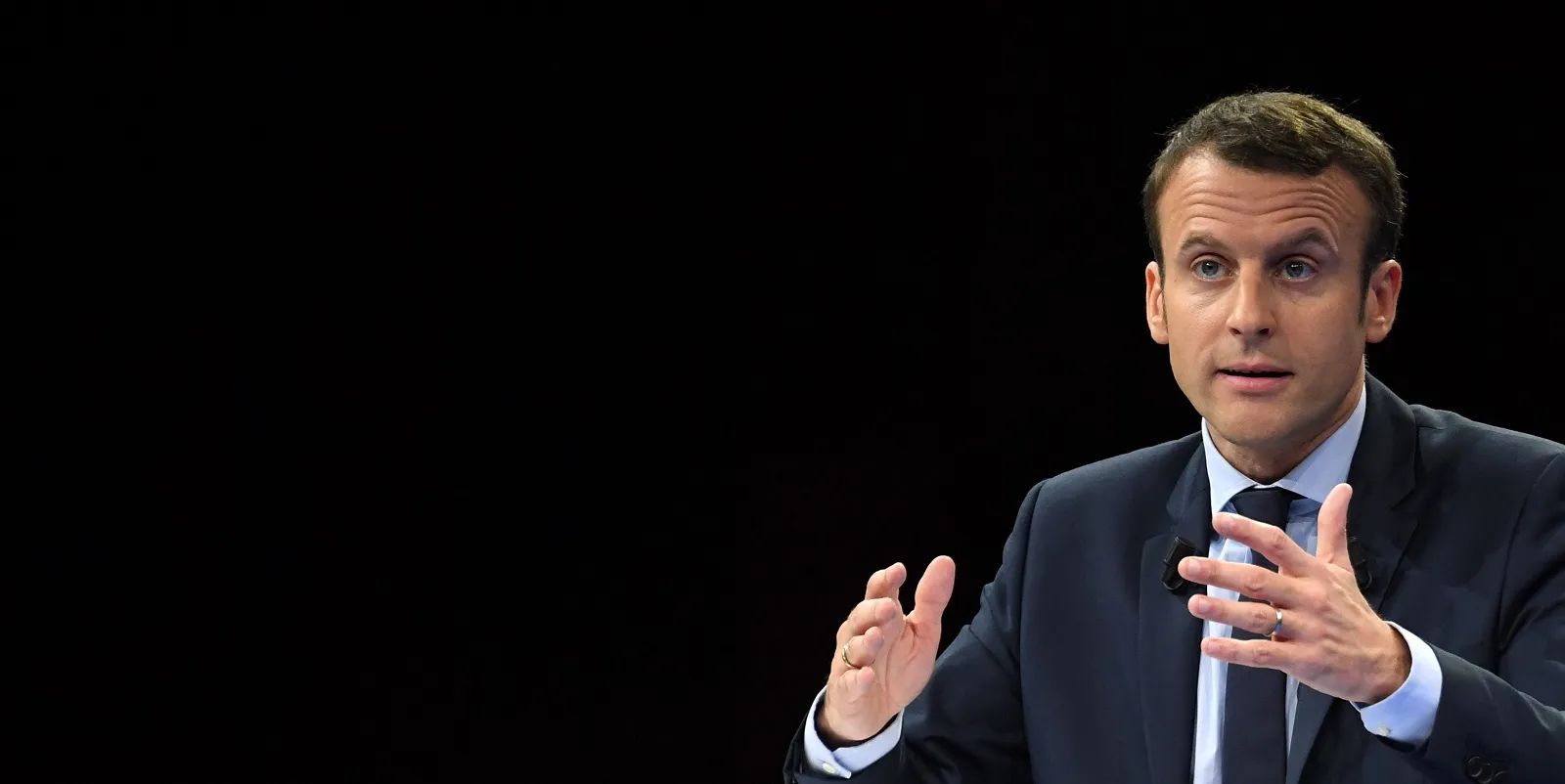French Presidential hopeful Macron bans Russian media from events after ‘gay’ smears

French Presidential frontrunner Emmanuel Macron has banned Russian state media outlets from attending his campaign events, after ‘gay’ smears.
Centrist unity candidate Mr Macron is set to face off against far-right Front National leader Marine Le Pen in France’s Presidential run-off election on Sunday.
In the short two-week campaign period ahead of the vote, Mr Macron has made a splash by controversially banning Russian state-owned outlets Russia Today and Sputnik from covering his events.
Speaking to Reuters his campaign branded them propaganda outlets that have “spread lies methodically and systematically”.
The swipe against the Russian state outlets after Sputnik published ‘gay’ smears aimed at Macron, reporting a “persistent rumour that [Macron] is secretly gay and living a ‘double life'”, and also accusing him of being in the pocket of a “very wealthy gay lobby”.

The politician, who has been married to his former school teacher Brigitte Trogneux since 2007, lashed out at the homophobic assertions.
In the interview he said: “Two things are vile behind the implication: to say that it is not possible for a man living with an older woman to be anything other than a homosexual or a hidden gigolo is misogynous. And it’s also homophobia.
“If I had been a homosexual, I would say it and I would live it.”
A Russian government spokesperson accused Macron of “openly discriminatory” actions by banning the two Russian outlets, noting that “other foreign media have not faced any obstacles”.
Macron’s run-off opponent Marine Le Pen has pledged to repeal same-sex marriage.
In her manifesto Le Pen promises to create an “improved” form of civil unions in the country to “replace” the equal marriage law passed under the current Socialist government in 2013.
The policy plan specifies that the changes would “not be retroactive”, sparing Le Pen the legal headache of trying to unpick or downgrade thousands of existing same-sex marriages, but the replacement plan would close same-sex marriage to new couples – meaning gays would once again only be able to enter civil partnerships.
It would be a return to the former status quo for France, which only permitted same-sex couples to enter a contractual form of civil union (PACS) from 1999 until 2013.
Macron, a supporter of LGBT rights, dedicated an entire section of his manifesto to LGBT issues.
In it he pledged to challenge homophobic in everyday life, and to tackle anti-LGBT discrimination in the workplace.
The candidate said he would scale up random checks of employers’ compliance with equality laws, while also “naming and shaming” those found to have discriminated.
He also promises to defend progress on equal marriage, hailing the law as a “fundamental achievement” of the past five years and an “an enrichment of what the family is in France that shows its importance to all of us”.
Elsewhere in the document he commits to opening up IVF and medically assisted fertility treatments to single women and female same-sex couples.
In one key concession, the former Socialist minister rules out reform of France’s strict surrogacy laws, any changes to which would be strongly opposed by the centre-right members of his unity coalition.
However, he does pledge to ensure that families with children born via international surrogacy will have their full rights protected, adding that it is wrong to “treat these children as foreigners in their own country”.
The run-off election takes place on Sunday.

